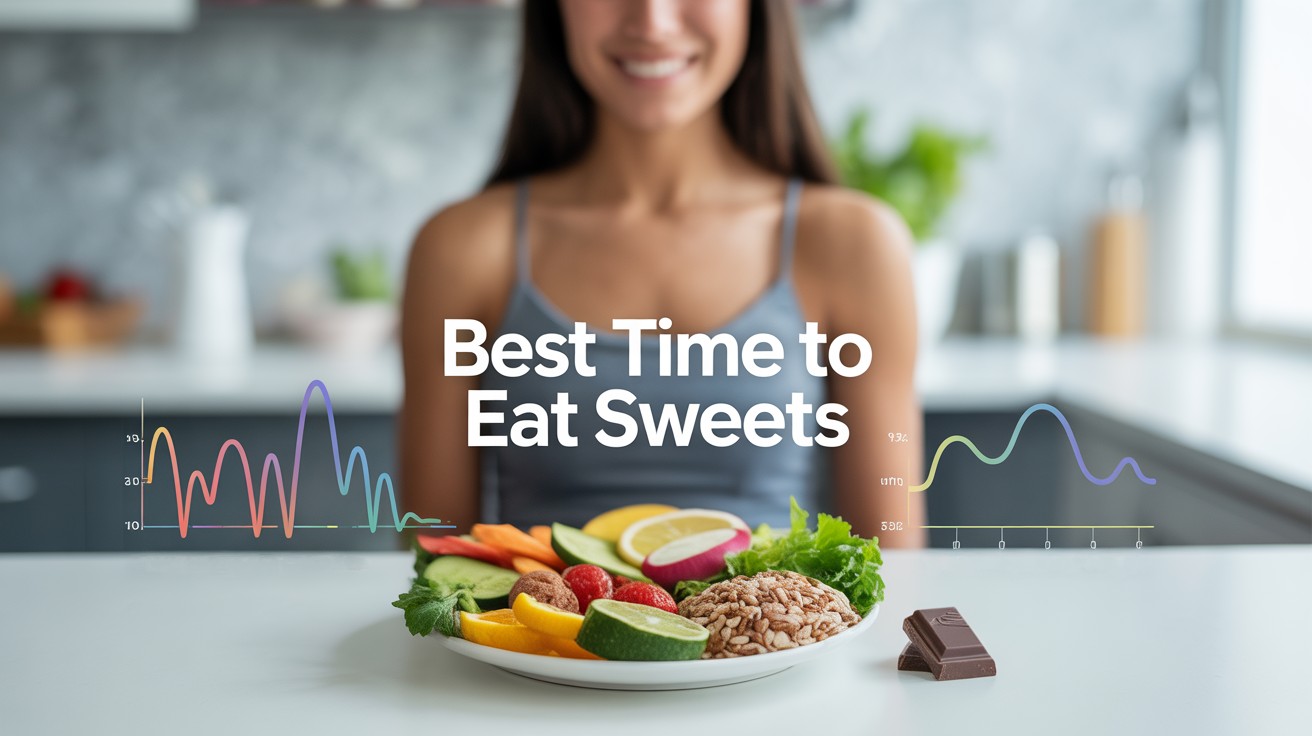Sweets are undeniably part of life. Whether it’s a piece of chocolate after a long day, a slice of cake at a birthday party, or a homemade dessert enjoyed with family, most people crave something sweet now and then. Although these little indulgences bring pleasure, the question remains: when is the best time to eat sweets so they don’t harm your health too much? Surprisingly, timing makes a big difference when it comes to how your body processes sugar.
Why You Should Avoid Eating Sweets on an Empty Stomach
First of all, let’s talk about what happens when sweets are eaten on an empty stomach. At that moment, your blood sugar levels rise very quickly. This sharp increase gives you an immediate rush of energy, but unfortunately, it doesn’t last. Shortly after, your sugar levels drop just as fast, leaving you tired, irritable, and craving more sweets. As a result, this cycle of ups and downs can make it more difficult to control hunger throughout the day.
In addition, repeated sugar spikes may increase the risk of weight gain, insulin resistance, and other long-term health problems. Therefore, although grabbing a sweet snack in the middle of the morning or afternoon might feel satisfying at first, it’s usually not the best choice for your body.
The Best Time: Right After Your Main Meals
On the other hand, the best time to enjoy sweets is right after a balanced meal, such as lunch or dinner. The reason is simple: when sugar is consumed alongside proteins, fibers, and healthy fats, digestion slows down. This combination helps regulate how quickly sugar enters the bloodstream, preventing extreme spikes and keeping energy levels steadier.
For instance, eating a small piece of chocolate cake after lunch is far less harmful than eating the same piece in the middle of the morning on an empty stomach. The nutrients from the meal act as a buffer, softening the impact of sugar on your body. In other words, dessert becomes less of a problem when it’s part of a bigger, balanced meal.
Moreover, saving sweets for after meals can help with portion control. Since you’re already satisfied from your main dish, you’re less likely to overindulge in dessert. This small habit can make a huge difference in maintaining healthier eating patterns.
Practical Tips for Healthier Sweet Consumption
- Choose fruits first: Instead of always reaching for candy or cake, try fruits as your go-to dessert. They satisfy sweet cravings and provide vitamins, minerals, and fiber.
- Control your portions: A small piece of dessert can be enough to enjoy without overloading your system with sugar.
- Avoid sweets at night: Eating sugar too close to bedtime may affect sleep quality and digestion, leaving you restless.
- Pair sweets with balanced meals: Make it a personal rule to have desserts after lunch or dinner rather than as a snack on their own.
Small Changes, Big Results
Even small adjustments — like shifting your sweet treat to after a meal or opting for fruit instead of processed dessert — can add up over time. Consequently, these modest changes will not only reduce blood sugar volatility but also support better energy levels and mood stability throughout the day. In other words, mindful timing helps you enjoy sweets without the negative side effects.
Conclusion
To sum up, you don’t need to eliminate sweets from your life completely. The secret is balance and timing. By choosing to eat them after your main meals, you reduce their negative effects, avoid energy crashes, and still satisfy your cravings in a smarter way. Small, intentional decisions like these can have a big impact on your long-term health, allowing you to enjoy life’s sweet moments without guilt.


Leave a Reply